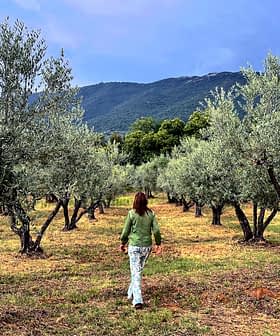Consumers in Spain Don't Appreciate Organic EVOO, Researchers Say
The established position of conventional extra virgin olive oil in Spain leaves little room for its organic version.
Researchers from the University of Jaén conducted a survey among Spanish consumers in an attempt to explain the low levels of organic extra virgin olive oil consumption in the country. They examined the factors that affect consumers choices and they suggested that existing barriers in the market are not by themselves sufficient to justify the situation, but low consumption also has to do with how consumers value the product.
We conclude that this group of consumers simply does not value the ‘organic’ attribute highly enough and therefore has no desire for, or interest in, organic EVOO.
In a country which is a global leader when it comes to land dedicated to organic olive farming, it is particularly striking that consumers spend a mere 0.007 percent of their annual food budget (translating to an average of $0.16) on organic extra virgin olive oil, the researchers noted. On top of that, most of the locally produced OEVOO is shipped to markets abroad.
To get some answers, the researchers first examined the known market barriers for consumers in buying organic EVOO — price difference, the lack of awareness of organic foods, and the faulty distribution system — and then they conducted a survey by handing out questionnaires to collect data.
The difference in price between conventional and organic products seems to be the biggest obstacle of all, not only in Spain but also in many other countries. The lack of awareness prevents consumers from distinguishing the special attributes of organic foods, while faulty distribution means that organic food products are not widely available and easy to locate.
The research pointed out that the market barriers were not the only culprits for low consumption. To get to the bottom of the problem, a survey was carried out in six different cities of Spain to achieve geographical dispersion.
Manuela Vega Zamora, one of the researchers, spoke to Olive Oil Times about their work.

Manuela Vega Zamora
“A survey was conducted of 800 urban olive oil buyers over 25 years of age and living in Spain. Data were collected through a structured questionnaire. The difficulties or problems that consumers face in the purchase of organic olive oil were measured. First, we measured the perceived difficulties, and then we evaluated whether these difficulties really affect purchasing behavior.”
A total of 793 valid questionnaires were collected and evaluated. It was found that only 16 percent of urban consumers use organic EVOO (frequently or occasionally), while 84 percent were identified as non-consumers. Age, gender, and education level of interviewees turned out to be of no significance.
The data analysis showed that both consumers and non-consumers had a clear perception of the market barriers. However, the answers of non-consumers did not clearly pinpoint the market barriers alone as the reason for not buying. “The results show that a group of consumers does not buy the product, perceives difficulties or limiting factors, and yet does not give any clear indication that these difficulties directly determine the decision not to purchase,” Zamora said.
After re-evaluating the survey data and focusing on specific answers in the questionnaires, the researchers reached a remarkable conclusion: the real reason for the non-consumers boycott is that they simply think that conventional extra virgin is good enough for them and they believe that the organic attribute makes no difference. In other words, the problem is the product itself, where the term ‘organic’ creates no added value to it.
“We conclude that this group of consumers simply does not value the ‘organic’ attribute highly enough and therefore has no desire for or interest in organic EVOO,” Zamora explained. “We were very surprised because of the importance of organic foods. Nevertheless, we are conscious that conventional olive oil is very appreciated by Spanish consumers and we have other papers which show that the high appreciation of conventional olive oil is a barrier in the consumption of organic olive oil.”
The researchers argued that the low appreciation of organic EVOO is more difficult to deal with than the existing market barriers since it is associated with personal values and product awareness.
Moreover, a change in consumers behavior is not to be seen in the near future, as Zamora noted: “We do not expect a change soon. We believe that this change will occur in the long term, as long as communication campaigns are developed to make the organic food more known and that consumers know exactly what means to be organic, as well as environmental awareness campaigns. It is important that consumers be conscious about how organic consumption contributes to the preservation of the environment. Consumers can preserve the environment not only through recycling but also with what they eat.”
On the other hand, the fact that the majority of the Spanish organic EVOO is exported is not really a problem for Spanish producers, Zamora told us. “From an economic perspective, producers do not sustain a loss. In foreign markets it is a much more valued product than in Spain, therefore consumers are willing to pay a much higher price. It is a healthy product and, in addition, organic.”
The report sustained that public administrative bodies and agents of the olive oil sector want to increase consumption of organic food in Spain, and organic EVOO is of high priority due to the importance of organic olive growing in rural areas of the country.
The results of the survey could be used in the design of different strategies to boost demand of organic EVOO, focusing on limiting the market barriers for its existing consumers and on changing social and environmental awareness for non-consumers.
- False Barriers in the Purchase of Organic Foods. The Case of Extra Virgin Olive Oil in Spain
- Expenditure on food per capita








